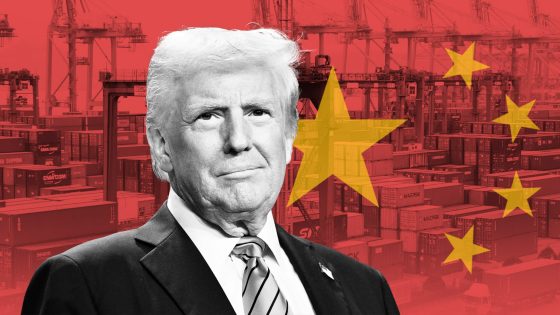On February 4, 2025, China announced plans for its exporters to enhance offshoring strategies in response to tariffs imposed by the united states under former President Donald Trump. This shift aims to mitigate the financial impact of these tariffs on Chinese goods and maintain competitive pricing in global markets.
- China to increase offshoring due to tariffs
- New tariffs on U.S. imports effective Feb. 10
- U.S. tariffs on Chinese goods now in effect
- China responds: Fentanyl issue is U.S. problem
- Lawmaker criticizes trade war as 'dumbest'
The ongoing trade tensions between the United States and China have prompted significant shifts in how Chinese exporters operate. With U.S. tariffs affecting a wide range of products, many businesses are looking beyond their borders for manufacturing solutions that can help reduce costs associated with these duties.
Key developments include:
- China’s planned increase in offshoring activities aimed at maintaining market competitiveness.
- A potential rise in production facilities established outside of China, particularly in Southeast Asia.
- An anticipated adjustment period for exporters as they navigate new supply chain logistics.
This strategic pivot comes as both nations continue to grapple with the implications of their trade policies. As U.S. tariffs remain a contentious issue, Chinese companies are exploring various avenues to ensure their products remain affordable and accessible in international markets.
The focus on offshoring could lead to broader economic changes within China itself, including shifts in labor dynamics and investment patterns. Exporters may also need to invest significantly in new infrastructure abroad while managing relationships with existing suppliers back home.
This decision by Chinese exporters highlights their adaptability amid challenging trade conditions while underscoring the long-term effects of tariff policies on global commerce.































